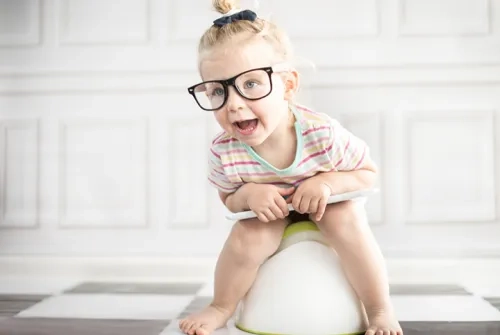Alo Yeditepe
Alo Yeditepe
Poop and Urine Incontinence in Children Can be a Sign of Serious Disorders
Poop and urinary incontinence, which are considered innocent in preschool children, can sometimes be a symptom of serious disorders and psychological problems. Pediatric Surgery Specialist Assoc. Prof. Dr. Şafak Karaçay states that when faced with such situations, it is necessary to consult an expert.
After babies are born, they need a toilet with a diaper. However, after a while, toilet training begins, and diaper usage is stopped. When the child is two years old, the poop continence, that is, the ability to hold the poop, begins, while the time for urination is slightly longer. Explaining that children started to hold their urine at the average age of three, Yeditepe University Kozyatağı Hospital Pediatric Surgery Specialist Assoc. Prof. Dr. Şafak Karaçay: “Urinary incontinence between the ages of four and six is not a problem due to the slow functioning of newly noticed muscle groups in this process. But subsequent cases are considered pathological, that is, problematic.”
Continued Poop Abduction After the Age of Two Must Be Cared About
Poop incontinence is a more problematic action than urinary incontinence. If this continues in proportion to the child's growth, the likelihood of impairment in underlying neural and anatomical activities increases. Since pooping can start early in life, it should be investigated in detail if children over the age of two are faced with incontinence. Stating that constipation is very common in our society due to incorrect and unhealthy nutrition, secondary poop incontinence and psychological reasons are also effective in seeing this problem, Assoc. Prof. Dr. Şafak Karaçay continues as follows: “It is necessary to care about pooping, to pay attention to it, and to eliminate the underlying pathological cause, if any. Therefore, it is of great importance to reveal the causes of the problem in the early period.”
Constipation Comes to the Forefront
The treatment for this condition varies according to the cause. If the child has very severe, habituated constipation, and in addition to this, if he is losing poop, first of all, constipation should be treated, and the poop stones that block the sensation inside should be eliminated. Another problem is the presence of a feeding or conduction problem in the muscles and nerves that keep the poop in the anal area. Any problem that may occur in our body's neural network can also cause problems in the nerve and backflow of children born with congenital nerve and brain abnormalities such as spina bifida. Assoc. Prof. Dr. Şafak Karaçay stated that when there is a problem on this path, it is often not easy or possible to correct the problem in the neural network and added the following: “Supportive treatments are given to children in the group in question. While some children cannot hold their poop throughout their lives, in some cases, if the innocent reasons related to the gut or nutrition are eliminated with the right treatments, the results can be gratifying.” In children of four years of age, the urinary habit begins to settle with the act of noticing and holding the urine. However, children that incontinence are divided into two groups. At this point, the patient's history gains importance. Stating that the approach changes according to whether urinary incontinence occurs during the day or at night, Assoc. Prof. Dr. Şafak Karaçay continues: “The reasons for these are completely different from each other. The path to follow is also changing. If a child who only pees at night has no other symptoms, the problem can be controlled within a certain period with mild and easy treatments. This refers to a picture that happens to most people during the developmental stage. If there is no other accompanying pathology, it is necessary to cooperate with the child and combine the currently used treatments and proceed as a team. But if there is daytime urinary incontinence, it is important to address it separately. Because these children may have a nervous problem, a low-capacity bladder. Sometimes, nerve conduction pathways can be troublesome, just like pooping. In a very simple way, there can also be unrecognized and often recurring urinary tract infections. An anatomical problem can also be found higher up in the bladder. Therefore, it is important to take the right steps and apply the necessary imaging methods in order to make the right diagnosis."
The Approach to Night and Day Urinary Incontinence is Changing
In children of four years of age, the urinary habit begins to settle with the act of noticing and holding the urine. However, incontinent children are divided into two groups. At this point, the patient's history gains importance. Stating that the approach changes according to whether urinary incontinence occurs during the day or at night, Assoc. Prof. Dr. Şafak Karaçay continues: “The reasons for these are completely different from each other. The path to follow is also changing. If a child who only pees at night has no other symptoms, the problem can be controlled within a certain period with mild and easy treatments. This refers to a picture that happens to most people during the developmental stage. If there is no other accompanying pathology, it is necessary to cooperate with the child and combine the currently used treatments and proceed as a team. But if there is daytime urinary incontinence, it is important to address it separately. Because these children may have a nervous problem, a low-capacity bladder. Sometimes, nerve conduction pathways can be troublesome, just like pooping. In a very simple way, there can also be unrecognized and often recurring urinary tract infections. An anatomical problem can also be found higher up in the bladder. Therefore, it is important to take the right steps and apply the necessary imaging methods in order to make the right diagnosis."
It Can Lead to Kidney Loss
If the problem is a child with urinary incontinence and a small bladder, medical or surgical treatments are applied. If there is a leak from the bladder to the kidneys, medical and surgical treatment comes to the fore to eliminate it. If there is a problem in the ureter or kidneys, the child is usually treated surgically. Stating that the most feared situation for boys or girls is the inability of families to notice the problems that can lead to kidney loss, Yeditepe University Hospital specialist Assoc. Prof. Dr. Şafak Karaçay: “A pediatric surgeon needs to be followed up as the disease progresses stealthily. Although the rates are not very high, there is a possibility of kidney disorders in children. So, it has to be taken into consideration.”
Press Coverage: cumhuriyet.com | cnnturk.com | hurriyetaile.com | mynet.com
About
Faculty and Year of Graduation:
Marmara University Faculty of Medicine (English), 1999
”
See Also
- Kidney Reflux Should Be Suspected in Children with Urinary Tract Infection
- Ingrown Hair Is Not Just an Adult Problem
- Attention to the Genetic and Nutritional Factor: Five Out of Every 100 Children Have a Kidney Stone Problem
- Hernias in Children Should Be Intervented Without Wasting Time
- Does Environmental Pollution Cause an Increase in the Cases of the Hypospadias?
Alo Yeditepe




